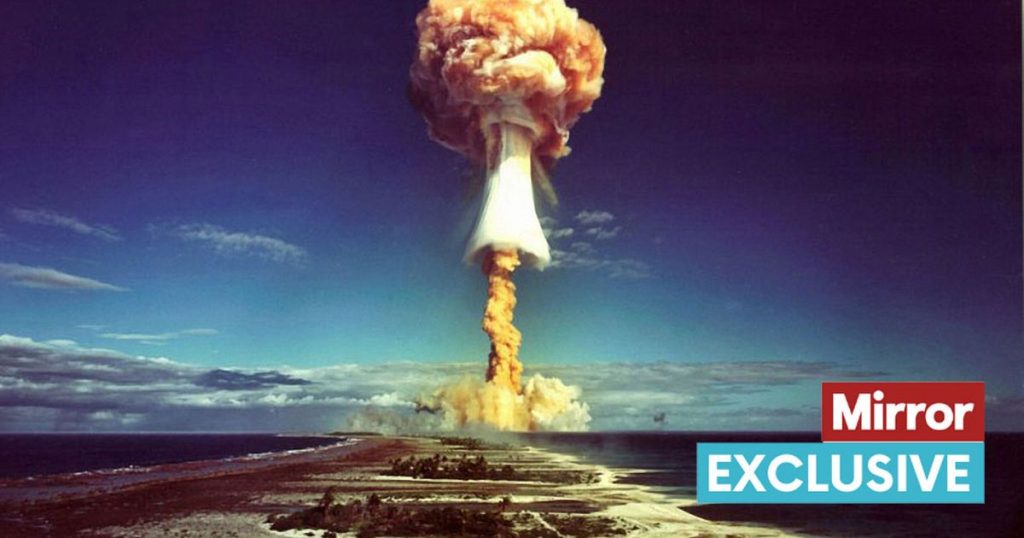A recent investigation has revealed that tens of thousands of files dating from the Cold War era, detailing the horrific effects of radiation and nuclear testing on British troops, were deliberately covered up by the Ministry of Defence (MoD). These files included blood tests results of soldiers involved in nuclear testing, highlighting the dangers they were exposed to. Despite being in the public domain previously, these 78,000 files were hidden from the public eye due to concerns about legal risks. One shocking memo from 1958 revealed the alarming irregularities in the blood of Squadron Leader Terry Gledhill, who was ordered to fly through mushroom clouds during nuclear testing. This discovery exposed the repeated instances of blood testing on thousands of nuclear veterans, shedding light on the dangerous impact of radiation on these soldiers.
Campaigner Alan Owen expressed his concern over the cover-up, stating that the Gledhill memo was likely not the only one documenting the adverse effects of radiation on troops. It appears that the MoD made a conscious decision to conceal these documents to avoid potential legal consequences, rather than allow the public to access and scrutinize them. The costs incurred in hiding these files amounted to over £250,000, as revealed through a Freedom of Information request made to the National Archives. The documents were either moved to an archive in Wick, Scotland, or to the Atomic Weapons Establishment in Aldermaston, Berks, further emphasizing the deliberate attempt to keep this information out of the public domain. The MoD has been urged to provide a statement regarding these revelations.
The decision to bury these files sheds light on the dark history of radiation experiments conducted on British troops during the Cold War era. The deliberate concealment of these records suggests a concerted effort to hide the potential harm and risks faced by soldiers involved in nuclear testing. The discovery of irregularities in the blood of Squadron Leader Gledhill, who was exposed to radiation during nuclear tests, underscores the need for transparency and accountability in such matters. Campaigners and advocates have called for greater honesty and disclosure from the MoD concerning the impact of radiation on military personnel, emphasizing the importance of acknowledging the sacrifices made by these veterans.
The internal memo from former UK nuclear weapons chief Paul Hollinshead, ordering the removal of these documents from the public domain, raises questions about the motives behind such actions. The concerns about legal risks associated with the files suggest a fear of potential repercussions or backlash if the documents were made accessible to the public. The redirection of these records to specific archives points to a deliberate strategy to keep the information hidden and limit public scrutiny. The MoD’s reluctance to comment on these revelations further complicates the issue and raises suspicions about the extent of the cover-up.
The impact of radiation exposure on military veterans who participated in nuclear testing is a critical issue that requires transparency and accountability from the authorities. The attempted cover-up of these files reflects a troubling trend of prioritizing secrecy over the well-being and rights of those who served in the armed forces. The importance of acknowledging the sacrifices and risks faced by these veterans cannot be understated, and it is essential for the MoD to address these concerns and provide answers to the affected individuals and their families. The revelations from this investigation shine a light on a dark chapter in British military history, underscoring the need for accountability and justice for those who were exposed to the dangers of radiation during nuclear testing.


